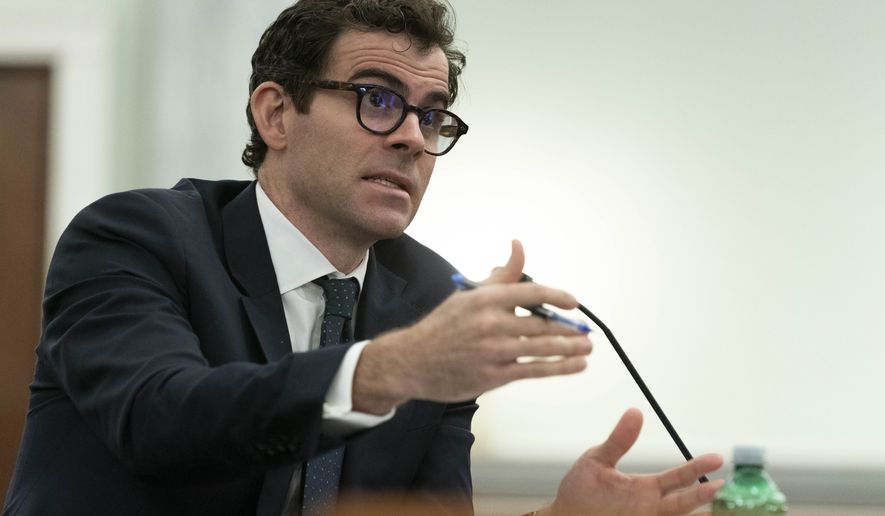Senators sparred with Instagram CEO Adam Mosseri on Wednesday over whether the popular social media platform addicts children, as the lawmakers signaled that they want the government to curtail the company’s operations.
Mr. Mosseri insisted he shared concerns about children using social media, but lawmakers on the Senate Commerce Committee’s consumer protection, product safety, and data security panel were not buying it. Lawmakers expressed concerns about damage to children’s mental health and emotional well-being from using the platform.
“Instagram is addictive. That’s the view that has been repeated again and again and again by people who are expert in this field,” said Sen. Richard Blumenthal, Connecticut Democrat, at the hearing. “Parents know it. And for teens who see Instagram’s algorithms encouraging, for example, eating disorders, they find it almost impossible to stop.”
Mr. Mosseri disputed Mr. Blumenthal’s claims about his company.
“Senator, respectfully, I don’t believe the research suggests that our products are addictive,” Mr. Mosseri said. “Research actually shows that on 11 of 12 difficult issues that teens face, teens who are struggling said Instagram helps more than harms.”
Mr. Mosseri attempted to sway senators by insisting that he had the “same goal” and wanted teens to be safe online.
“The internet isn’t going away and I believe there is important work that we can do together, industry and policymakers, to raise the standards across the internet to better serve and protect young people,” Mr. Mosseri said.
The Instagram executive’s comments enraged Sen. Amy Klobuchar, Minnesota Democrat, who said her office gets constant phone calls and emails from parents who are struggling to handle their kids’ usage of Instagram.
Ms. Klobuchar said parents are scared for their children who get addicted to Instagram at 10 years old.
“I think that we are in diametrically opposed goals, the goals of parents out there and the goals of your company,” Ms. Klobuchar said. “Our kids aren’t cash cows and that is exactly what’s been going on.”
Mr. Mosseri did not find a more welcome reception from Republicans.
Sen. Mike Lee, Utah Republican, said he also has heard from parents in his state about inappropriate content available through Instagram’s Explore feature. His office created an account and found objectionable content too, he said.
“I’m running out of time but I’m also running out of patience from a company that has told us over and over and over again, ‘We’re so concerned about your children. We’re so concerned, we’re commissioning a blue-ribbon study to be done,’ or ‘we’re doing a review,’ and stuff like this is still happening,” said Mr. Lee.
The Senate panel’s review of social media companies’ supposed harms to children has held four hearings lasting several hours since September, but precisely what solution lawmakers intend to pursue remains unclear.
Mr. Blumenthal said lawmakers wanted to “do more than shake fists” and he expressed a desire to create an independent body to oversee social media platforms.
“I believe that the time for self-policing and self-regulation is over,” said Mr. Blumenthal to Mr. Mosseri. “Some of the Big Tech companies have said, ‘trust us,’ that seems to be what Instagram is saying in your testimony but self-policing depends on trust — the trust is gone. What we need now is independent researchers, objective overseers not chosen by Big Tech but from outside, and strong, vigorous enforcement of standards that stop the destructive, toxic content that now too often is driven at kids and takes them down rabbit holes to dark places.”
On the eve of the hearing, Mr. Mosseri announced that his company would use a “stricter approach” in handling recommendations made to teenagers on its app and he said the company would create new tools available next year for parents and guardians to use in shaping their kids’ usage of Instagram.
The Senate’s next hearing involving social media platforms begins on Thursday, when a different Senate Commerce Committee panel intends to examine “dangerous algorithms” used by social media platforms in serving up content to people who use their products.
• Ryan Lovelace can be reached at rlovelace@washingtontimes.com.




Please read our comment policy before commenting.